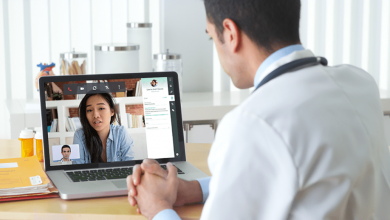Business
Can mobile medical services replace traditional in-person healthcare entirely?

Mobile medical services, with their convenience and accessibility, have undoubtedly revolutionized healthcare delivery, offering a range of services from remote consultations to medication delivery by DocGo. However, the question of whether they can entirely replace traditional in-person healthcare is multifaceted, involving considerations of efficacy, accessibility, patient preferences, and technological limitations.
Proponents of DocGomobile medical services argue that they have the potential to transform healthcare delivery by overcoming barriers such as geographical distance, transportation issues, and time constraints. With the widespread adoption of smartphones and internet connectivity, individuals can now access healthcare services from the comfort of their homes or workplaces, eliminating the need for physical travel to healthcare facilities. This convenience is particularly beneficial for individuals with mobility limitations, chronic illnesses, or those living in remote areas with limited access to healthcare facilities.
Moreover, mobile medical services offer cost-effective solutions for both patients and healthcare providers. By reducing the overhead costs associated with maintaining physical infrastructure, such as hospitals and clinics, mobile medical services can lower the overall healthcare expenditure. Additionally, remote consultations and monitoring can lead to early detection of health issues, potentially reducing the need for expensive medical interventions in the long run.
Furthermore, mobile medical services have the potential to improve healthcare outcomes by enhancing patient engagement and adherence to treatment plans. Through mobile apps and wearable devices, patients can actively participate in their healthcare management, tracking vital signs, medication adherence, and lifestyle changes. This real-time data can enable healthcare providers to deliver personalized and proactive care, leading to better health outcomes.
Limitations of Telemedicine: While telemedicine can address many routine healthcare needs, certain medical conditions still require in-person evaluation and intervention. Physical examinations, diagnostic tests, and procedures cannot always be performed remotely, limiting the scope of mobile medical services.

Digital Divide: Despite the increasing penetration of smartphones and internet connectivity, there are still significant disparities in access to technology, particularly among older adults, low-income populations, and rural communities. This digital divide could exacerbate existing healthcare inequalities, as those who lack access to mobile devices or reliable internet may be unable to benefit from mobile medical services.
Complex Medical Cases: Patients with complex medical conditions or multiple comorbidities may require coordinated care from multidisciplinary teams, which is challenging to deliver through remote consultations alone. In-person healthcare facilitates comprehensive assessments, collaboration among specialists, and hands-on interventions, which are essential for managing complex cases effectively.
Human Connection: Despite the convenience of remote consultations, many patients value the human connection and empathy provided by in-person interactions with healthcare providers. The physical presence of a healthcare professional can convey reassurance, trust, and emotional support, which may be lacking in virtual consultations.



